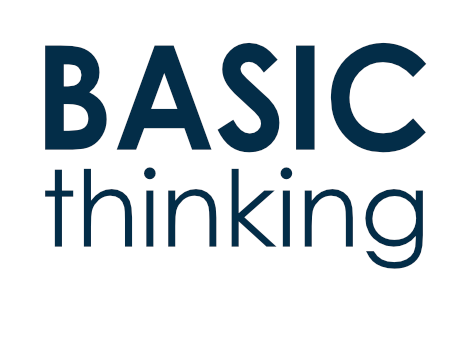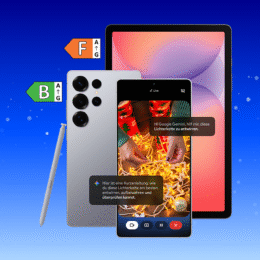suche gerade nach einem verschollenen Artikel auf dem MEX Blog (schon mal unter 4.500 Artikel gewühlt und Du weißt einfach nicht, was wohl das passende Stichwort zum Artikel sein könnte… ätz) und dabei auf folgendes, wahrhaft köstliche Blogposting gestoßen. Wer den Autor des Artikels kennt, einfach mal Bescheid geben im Kommentar:
„In the beginning there was an island off the coast of Europe. It had no name, for the natives had no language, only a collection of grunts and gestures that roughly translated to „Hey!“ “ Gimme!“ and „Pardon me, but would you happen to have any woad?“
Then the Romans invaded it and called it Britain, because the natives were „blue, nasty, br(u- i)tish and short.“ This was the start of the importance of u (and its mispronounciation) to the language. After building some roads, killing off some of the nasty little blue people and walling up the rest, the Romans left, taking the language instruction manual with them.
The British were bored so they invited the barbarians to come over (under Hengist) and „Horsa“ ‚round a bit. The Angles, Saxons, and Jutes brought slightly more refined vocal noises.
All of the vocal sounds of this primitive language were onomatapoeic, being derived from the sounds of battle. Consonants were derived from the sounds of weapons striking a foe. „Sss“ and „th“ for example are the sounds of a draw cut, „k“ is the sound of a solidly landed axe blow, „b“, „d“, are the sounds of a head dropping onto rock and sod respectively, and „gl“ is the sound of a body splashing into a bog. Vowels (which were either gargles in the back of the throat or sharp exhalations) were derived from the sounds the foe himself made when struck.
The barbarians had so much fun that decided to stay for post-revel . The British, finding that they had lost future use of the site, moved into the hills to the west and called themselves Welsh.
The Irish, having heard about language from Patrick, came over to investigate. When they saw the shiny vowels, they pried them loose and took them home. They then raided Wales and stole both their cattle and their vowels, so the poor Welsh had to make do with sheep and consonants. („Old Ap Ivor hadde a farm, L Y L Y W! And on that farm he hadde somme gees. With a dd dd here and a dd dd there…“)
To prevent future raids, the Welsh started calling themselves „Cymry“ and gave even longer names to their villages. They figured if no one could pronounce the name of their people or the names of their towns, then no one would visit them. (The success of the tactic is demonstrated still today. How many travel agents have YOU heard suggest a visit to scenic Llyddumlmunnyddthllywddu?)
Meantime, the Irish brought all the shiny new vowels home to Erin. But of course they didn’t know that there was once an instruction manual for them, so they scattered the vowels throughout the language purely as ornaments. Most of the new vowels were not pronounced, and those that were were pronounced differently depending on which kind of consonant they were either preceding or following.
The Danes came over and saw the pretty vowels bedecking all the Irish words. „Ooooh!“ they said. They raided Ireland and brought the vowels back home with them. But the Vikings couldn’t keep track of all the Irish rules so they simply pronounced all the vowels „oouuoo.“
In the meantime, the French had invaded Britain, which was populated by descendants of the Germanic Angles, Saxons, and Jutes. After a generation or two, the people were speaking German with a French accent and calling it English. Then the Danes invaded again, crying „Oouuoo! Oouuoo!“ burning abbeys, and trading with the townspeople.
The Britons that the Romans hadn’t killed intermarried with visiting Irish and became Scots. Against the advice of their travel agents, they decided to visit Wales. (The Scots couldn’t read the signposts that said, „This way to Lyddyllwwyddymmllwylldd,“ but they could smell sheep a league away.) The Scots took the sheep home with them and made some of them into haggis. What they made with the others we won’t say, but Scots are known to this day for having hairy legs.
The former Welsh, being totally bereft, moved down out of the hills and into London. Because they were the only people in the Islands who played flutes instead of bagpipes, they were called Tooters. This made them very popular. In short order, Henry Tooter got elected King and begin popularizing ornate, unflattering clothing.
Soon, everybody was wearing ornate, unflattering clothing, playing the flute, speaking German with a French accent, pronouncing all their vowels „oouuoo“ (which was fairly easy given the French accent), and making lots of money in the wool trade. Because they were rich, people smiled more (remember, at this time, „Beowulf“ and „Canterbury Tales“ were the only tabloids, and gave generally favorable reviews even to Danes). And since it is next to impossible to keep your vowels in the back of your throat (even if you do speak German with a French accent) while smiling and saying „oouuoo“ (try it, you’ll see what I mean), the Great Vowel Shift came about and transformed the English language.
The very richest had their vowels shifted right out in front of their teeth. They settled in Manchester and later in Boston.
There were a few poor souls who, cut off from the economic prosperity of the wool trade, continued to swallow their vowels. They wandered the countryside in misery and despair until they came to the docks of London, where their dialect devolved into the incomprehensible language known as Cockney. Later, it was taken overseas and further brutalized by merging it with Dutch and Italian to create Brooklynese.“
















